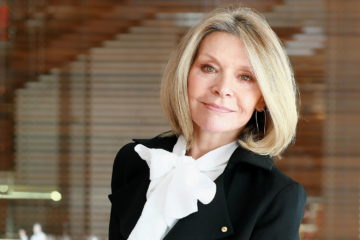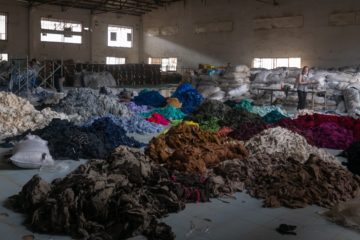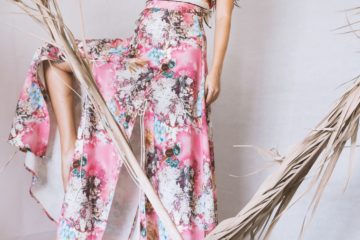by Sophie Newman
At Ethical Fashion Review for the past 3 years we have tried, and failed, to find an ethical and sustainable angle to cover for Australia’s MBFWA Fashion Week.
This year we’re sharing what we’ve learned in an attempt to to spark greater conversation instead of the usual silence, and address why Australia’s fashion week is sub-par according to ethical and environmental fashion standards, when compared with other weeks around the globe.
Helsinki Fashion Week is a flagship event for the industry, focusing entirely on sustainable fashion. They have created a week of international designer runways and seminars where environmental consciousness is intrinsic and considered an essential part of the program.
In Paris this year, with support of ambassadors including Mayor Anne Hidalgo, initiative “Paris For Good” was launched, announcing their goal to become the Sustainable Fashion Capital by 2024. They will outline their official road-map which commences in 2019 at an event scheduled for the middle of the year. Thus far we’ve learned it will include milestones around circular economy, sourcing and traceability, and sustainable distribution – including Paris Fashion Week.
Launched in 2010 by Eco-Age founder and fashion ambassador Livia Firth, the Green Carpet Challenge joins glamour with ethics by championing sustainable fashion worn at celebrity events, showing that the two can be paired seamlessly. The initiative offers a high-profile opportunity to discuss a label’s environmental principles, while exhibiting red carpet style.
Back home at retail fashion extravaganza, Melbourne’s VAMFF Fashion Festival, there are now literally hundreds of events incorporating diversity, inclusivity, sustainable and ethical fashion like workshops, art shows, fashion swaps, talks, and independent and main-stage runways.
As a whole, Australians have shown great pride through engagement and commitment to a greener, more environmentally-friendly future, adopting changes to their energy, waste, fashion and living behaviours.
So why at Australian Fashion Week is it difficult to identify a public engagement message or commitment to sustainability? Is it because ethical and sustainable brands don’t necessarily fit with production of the ‘four collections per year’ fashion model? Is transparency of a high-end brands’ supply chain more counteractive to their intellectual property? Are there not enough successful high-end businesses in this space? Or has planet and people-centric fashion not yet infiltrated the lives of high-end luxury consumers? Is sustainability the realm of the small business? Is the rise of the re-use and rental fashion models in competition with a luxury fashion model? We could go on..
The real question is this; Why, with all the resources and talent that luxury brands employ, combined with a tangible and growing demand, is there not greater movement towards ethical and sustainable practices on show in this sector of the industry?
As far as reasoning goes, we’re forced to conclude that no matter the size of the brand or price-tag of the garment, any organisation not willing to participate in the conversation of fair conditions and environmental stewardship are avoiding their responsibility as a business in the 21st century.
To say that it’s not feasible or in demand goes against the evidence. One only needs to look at a brand like Stella McCartney in the UK or Mara Hoffman US to see that it is not only possible to create quality, beautiful, luxury fashion using sustainable and ethical practices, these values can grow demand for the label.
A featured brand announced by MBFWA as their “leader in conscious, sustainable fashion” was rated “Not Good Enough” by both the 2018 Ethical Fashion Report and eco-fashion rating app, Good on You.
We don’t have all the answers and encourage consumers to keep asking questions, with the goal of influencing the future of Fashion Week Australia in an increasingly ethical and sustainable direction.
In fairness to the organisers, there is indication that sustainability was on the agenda, evidenced in their official partnership with Australian reusable drink container company frank green, and a one and a half hour ‘Fashionably Conscious’ seminar as part of the Fashion Weekend series.
Mercedes Benz Fashion Week Australia (MBFWA) runs from 12th to 17th May at Sydney’s Carriage Works for a week of industry only runways and trade shows exhibiting Australian designers’ Resort 2020 collections.
For consumers and the fashion-set, the event culminates in the Fashion Weekend Edition 17th -18th May, with curated runways and a mini-seminar series.
We’re genuinely optimistic about greater opportunity being created for eco and ethically conscious designers to show at Australia’s largest international fashion event, in the near future.
Words by Editor – Ethical Fashion Review. Not affiliated or endorsed.
Header image: Stella McCartney Winter17 campaign


